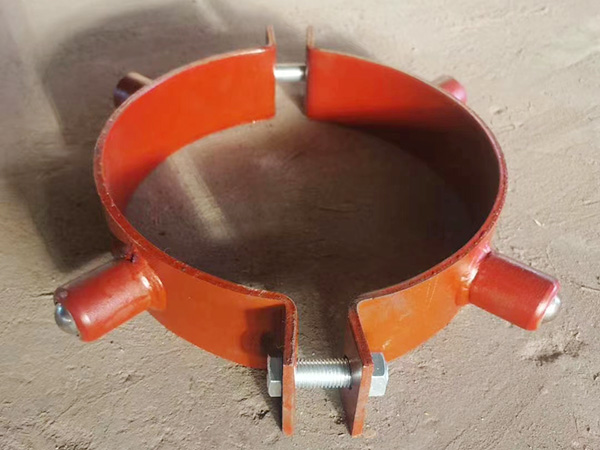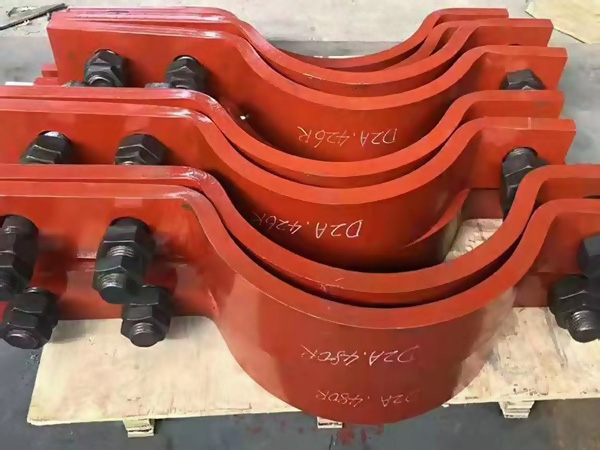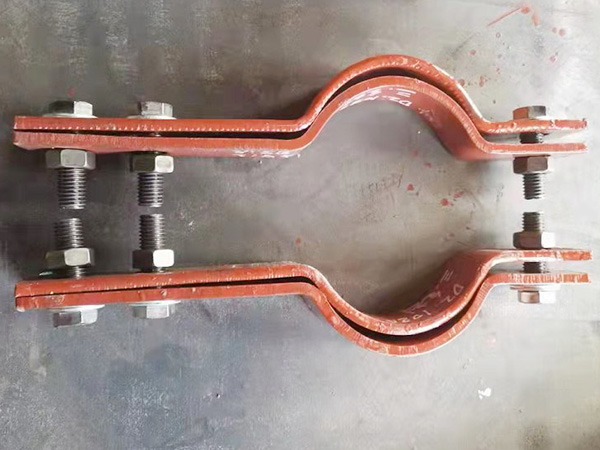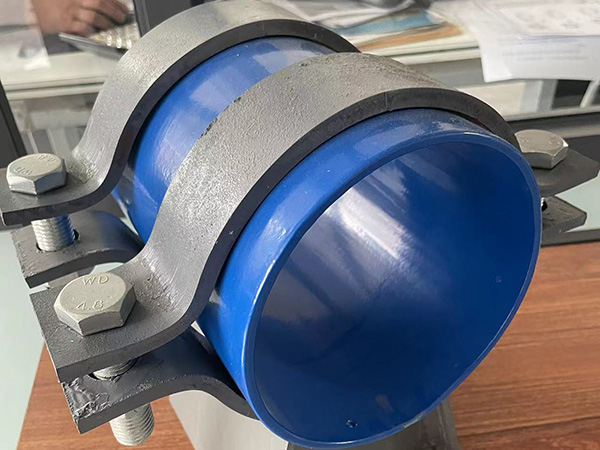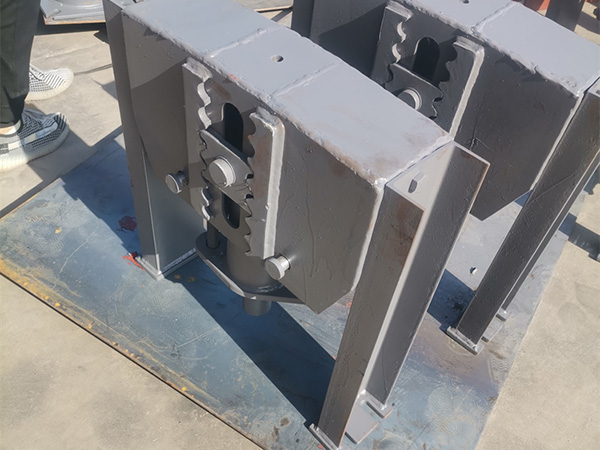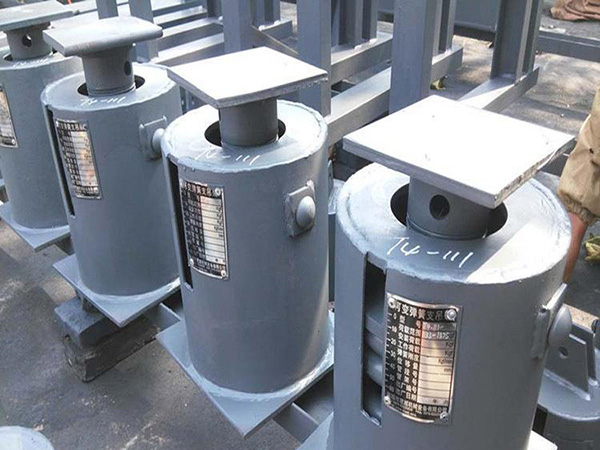Lightweight Pipe Insulation Bracket Materials and Manufacturing Technology
Author:Mingde Time:2025-10-18 09:18:46 Click:109
In today’s industrial landscape, energy efficiency and material optimization are top priorities.
Within the field of Pipe Support Systems, the shift toward lightweight materials has become a defining trend.
The modern Pipe Insulation Bracket — once a simple structural component — now represents an engineered solution integrating design innovation, advanced materials, and precision manufacturing.
Backed by China suppliers and China manufacturers equipped for bulk production, these systems are setting new standards for durability, weight reduction, and thermal performance across multiple industries.
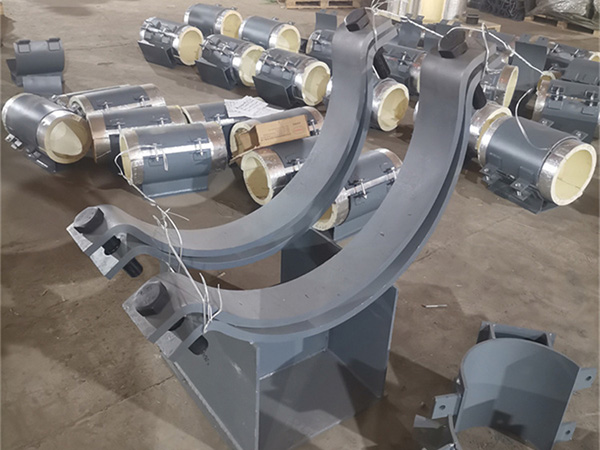
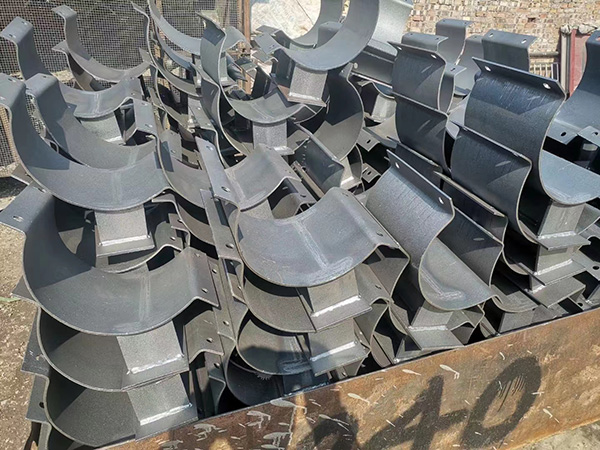
1. Why Lightweight Pipe Support Systems Matter
Traditional steel brackets, while strong, often add unnecessary load to pipelines and structures.
This results in increased installation complexity, higher transport costs, and greater long-term maintenance.
Lightweight Pipe Insulation Brackets eliminate these issues through:
·Lower structural stress on pipelines.
·Simplified mounting and replacement.
·Reduced project logistics costs.
·Improved insulation integrity due to minimized heat transfer points.
These advantages have made lightweight Pipe Support Systems a key feature in energy, chemical, and infrastructure projects worldwide.
2. Material Advancements for Modern Pipe Insulation Brackets
The material revolution behind this shift has transformed the way brackets are designed and used.
Contemporary Pipe Support Systems employ a wide variety of engineered materials, each selected for its strength, corrosion resistance, and insulation compatibility.
Representative materials include:
·Aluminum alloys: Combining light weight with mechanical rigidity.
·Stainless steel (optimized thin-wall): Delivering strength without excess mass.
·Reinforced polymers and composites: Providing superior resistance to chemicals and temperature extremes.
·Hybrid materials: Balancing metal structure with composite insulation for thermal efficiency.
Such materials help reduce thermal bridging, preserve pipe insulation, and extend system lifespan — crucial for industries operating under high temperature or pressure variations.
3. Manufacturing Technology and Digital Innovation
The evolution of Pipe Support Systems is deeply tied to modern manufacturing advancements.
Factories across China have implemented digitally controlled production lines that integrate CNC precision forming, robotic welding, and laser processing to achieve consistent quality at scale.
Core manufacturing methods include:
·CNC cutting and shaping for accuracy and consistency.
·Automated welding to ensure structural reliability.
·Powder or epoxy coating for corrosion and fire resistance.
·Simulation-driven optimization to perfect designs before production.
Through digital twin modeling and finite element analysis (FEA), manufacturers can predict stress performance and adjust designs before fabrication begins.
This process allows China suppliers to offer bulk supply of customized, project-specific brackets while maintaining strict quality standards.
4. Performance and Engineering Benefits
Lightweight Pipe Insulation Brackets do more than just reduce load — they enhance overall system performance.
Their design distributes mechanical stress evenly while ensuring stable thermal isolation.
Key benefits include:
·Strong resistance to vibration and pressure cycles.
·Reduced maintenance frequency and downtime.
·Improved fire resistance and corrosion protection.
·Enhanced alignment accuracy in long pipeline runs.
These improvements make lightweight Pipe Support Systems indispensable for industrial plants, energy facilities, and urban pipeline networks.
5. China’s Role as a Global Manufacturing Hub
China has become a cornerstone of the Pipe Support Systems industry due to its integration of large-scale manufacturing, engineering expertise, and logistics efficiency.
Local China manufacturers offer bulk production capabilities, advanced quality control systems, and cost-effective customization — a combination that appeals to global contractors.
Typical advantages from China suppliers include:
·Automated production lines ensuring consistent bracket quality.
·Comprehensive testing under international standards such as ISO, DIN, and ASTM.
·Flexible design modifications for various insulation materials.
·High-volume supply with rapid global delivery options.
These strengths position Chinese factories as reliable long-term partners in industrial and infrastructure projects worldwide.
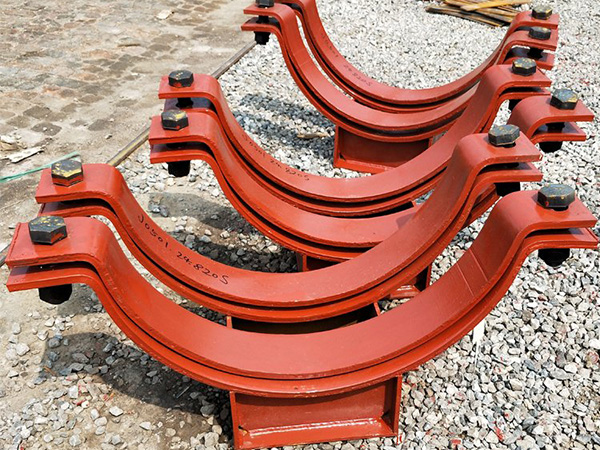
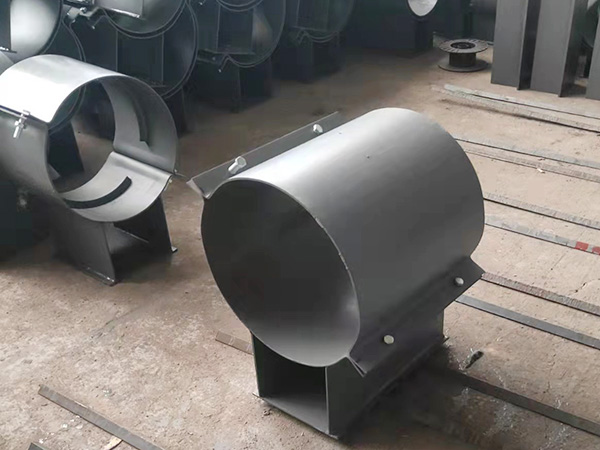
6. Key Applications Across Industries
Lightweight Pipe Support Systems are widely used in diverse industries where weight, durability, and insulation are critical factors.
Major application areas include:
·Petrochemical pipelines: Managing high pressure and corrosive media.
·Power generation plants: Supporting hot and insulated steam conduits.
·District heating networks: Maintaining heat efficiency over long distances.
·Marine and offshore installations: Withstanding moisture and dynamic stress.
·Manufacturing and process facilities: Ensuring vibration control and structural integrity.
Each application benefits from customized bracket materials and geometries tailored to thermal, mechanical, and environmental conditions.
7. Sustainability and Future Development
As environmental goals reshape engineering priorities, lightweight Pipe Support Systems play a key role in sustainability.
By minimizing material use and improving insulation performance, they contribute to reduced energy waste and lower carbon emissions.
The future will bring further innovations such as:
·Recyclable composite materials for greener production cycles.
·Smart coatings that adapt to temperature and humidity.
·AI-driven structural optimization to balance weight and load.
·Digital monitoring systems to track support integrity in real time.
China manufacturers are already investing in these technologies, positioning themselves at the forefront of next-generation pipeline engineering.
Conclusion
The transition to lightweight Pipe Insulation Bracket solutions marks a major leap forward for global infrastructure.
Combining advanced materials, precision manufacturing, and digital optimization, modern Pipe Support Systems now deliver both structural strength and environmental efficiency.
Choosing a China manufacturer with bulk production capacity ensures consistent quality, competitive pricing, and flexible customization — all essential for large-scale industrial and energy projects.
As industries continue to prioritize sustainability and performance, the lightweight Pipe Support System stands as a cornerstone of modern pipeline engineering and reliable long-term infrastructure development.
References
GB/T 7714:Porzuczek J. Comparative study on selected insulating materials for industrial piping[J]. Materials, 2024, 17(7): 1601.
MLA:Porzuczek, Jan. "Comparative study on selected insulating materials for industrial piping." Materials 17.7 (2024): 1601.
APA:Porzuczek, J. (2024). Comparative study on selected insulating materials for industrial piping. Materials, 17(7), 1601.
 Hot Products
Hot Products
 Contact Us
Contact Us
Contact:
Mobile:+86 +86 19133378808
Website:mingdepipe.com
Address:


